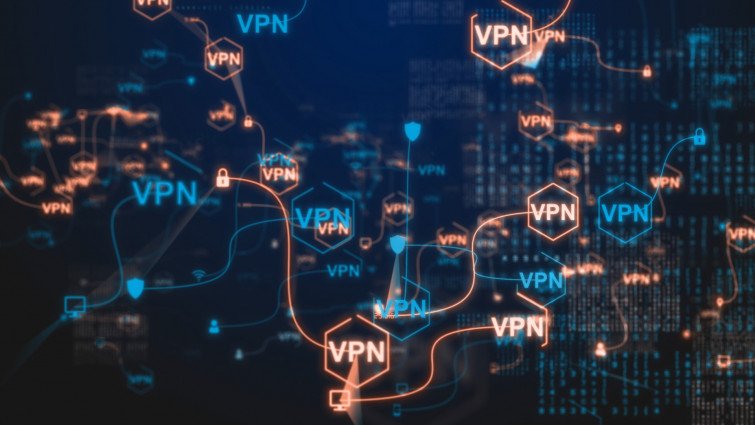In today’s digital world, online security and privacy are more important than ever. Virtual private networks (VPNs) are a powerful tool that can help you protect your data and keep your online activities private.
This article will provide an overview of VPNs, including what they are, why you should use one, and how to choose the best VPN for your needs. We will also discuss some common misconceptions about VPNs and emerging trends in VPN technology.
Whether you are a tech-savvy individual or a beginner, this article will provide you with the information you need to understand the benefits of using a VPN and choose the right one for you.
Introduction
Virtual private networks (VPNs) have become increasingly popular in recent years, and for good reason. VPNs offer a number of benefits, including enhanced online security, privacy, and anonymity.
What is a VPN?
A VPN is a secure and encrypted connection between two networks or devices. When you connect to a VPN, your traffic is routed through a VPN server, which masks your IP address and encrypts your data. This makes it difficult for anyone to track your online activity or intercept your sensitive information.
Why should you use a VPN?
- Online security: A VPN can help protect your devices from hackers and malware.
- Privacy: A VPN can help protect your online privacy by masking your IP address and encrypting your data. This makes it difficult for anyone to track your online activity or collect your personal information.
- Anonymity: A VPN can help you stay anonymous online by hiding your IP address. This can be useful for activities such as browsing the web, streaming content, and downloading files.
- Bypassing geo-restrictions: A VPN can help you bypass geo-restrictions and access content that is not available in your region. This can be useful for watching streaming shows, accessing websites, and downloading games and apps.
The benefits of using a VPN
In addition to the benefits listed above, using a VPN can also offer several other advantages, such as
- Improved Internet performance: A VPN can sometimes improve your Internet performance by bypassing bandwidth throttling imposed by your Internet service provider (ISP).
- Access to public Wi-Fi networks: A VPN can help protect your data when connecting to public Wi-Fi networks, which are often unsecured.
- Peace of mind: Knowing that your data is protected and your online activity is anonymous can provide peace of mind.
Common misconceptions about VPNs
- VPNs are only for illegal activities: This is not true. VPNs can be used for a variety of legitimate purposes, such as protecting your online security and privacy when working remotely, bypassing geo-restrictions, and accessing public Wi-Fi networks.
- VPNs slow down your internet connection: This is not always true. Some VPNs can improve your internet performance by bypassing bandwidth throttling imposed by your ISP. However, it is important to note that some VPNs can slow down your connection, especially if you are connecting to a server that is far away.
- All VPNs are the same: This is not true. There are many different VPN providers on the market, and they vary in terms of security, features, and price. It is important to do your research and choose a reputable VPN provider that meets your needs.
How to choose the best VPN for your needs
When choosing a VPN, there are a few key factors to consider:
- Security: Look for a VPN that uses strong encryption protocols and has a strict no-logs policy.
- Features: Consider the features that are important to you, such as the number of servers available, the ability to bypass geo-restrictions, and support for different devices.
- Price: VPNs can range in price from free to several hundred dollars per year. Choose a VPN that fits your budget and provides the features you need.
Emerging trends in VPN technology
VPN technology is constantly evolving, and new trends are emerging all the time. Some of the latest trends include:
- Focus on user-friendly interfaces: VPN providers are working to make their applications more user-friendly and accessible to people of all technical levelsVPN providers are working to make their applications more accessible and easier to navigate for users of all technical levels. This means that even if you’re not particularly tech-savvy, you can still take advantage of the benefits that a VPN provides.
- Development of specialized VPN protocols: New VPN protocols are being developed that offer faster speeds and better security traditional VPN protocols, such as OpenVPN, are reliable and secure, but they can sometimes be slower. To address this, new protocols like WireGuard have been introduced, which offer faster speeds without compromising security. These advancements in VPN protocols allow users to enjoy a seamless browsing experience while still maintaining their privacy.
- Implementation of advanced security features: VPN providers are increasingly implementing advanced security features, such as split tunneling and multi-hop connections. Split tunneling allows users to route specific traffic through the VPN while allowing other traffic to bypass it, providing more flexibility and control. Multi-hop connections route your traffic through multiple VPN servers, further enhancing security and anonymity.
Conclusion
VPNs offer several benefits, including enhanced online security, privacy, and anonymity. If you are looking for a way to protect your data and online activity, using a VPN is a great option.
